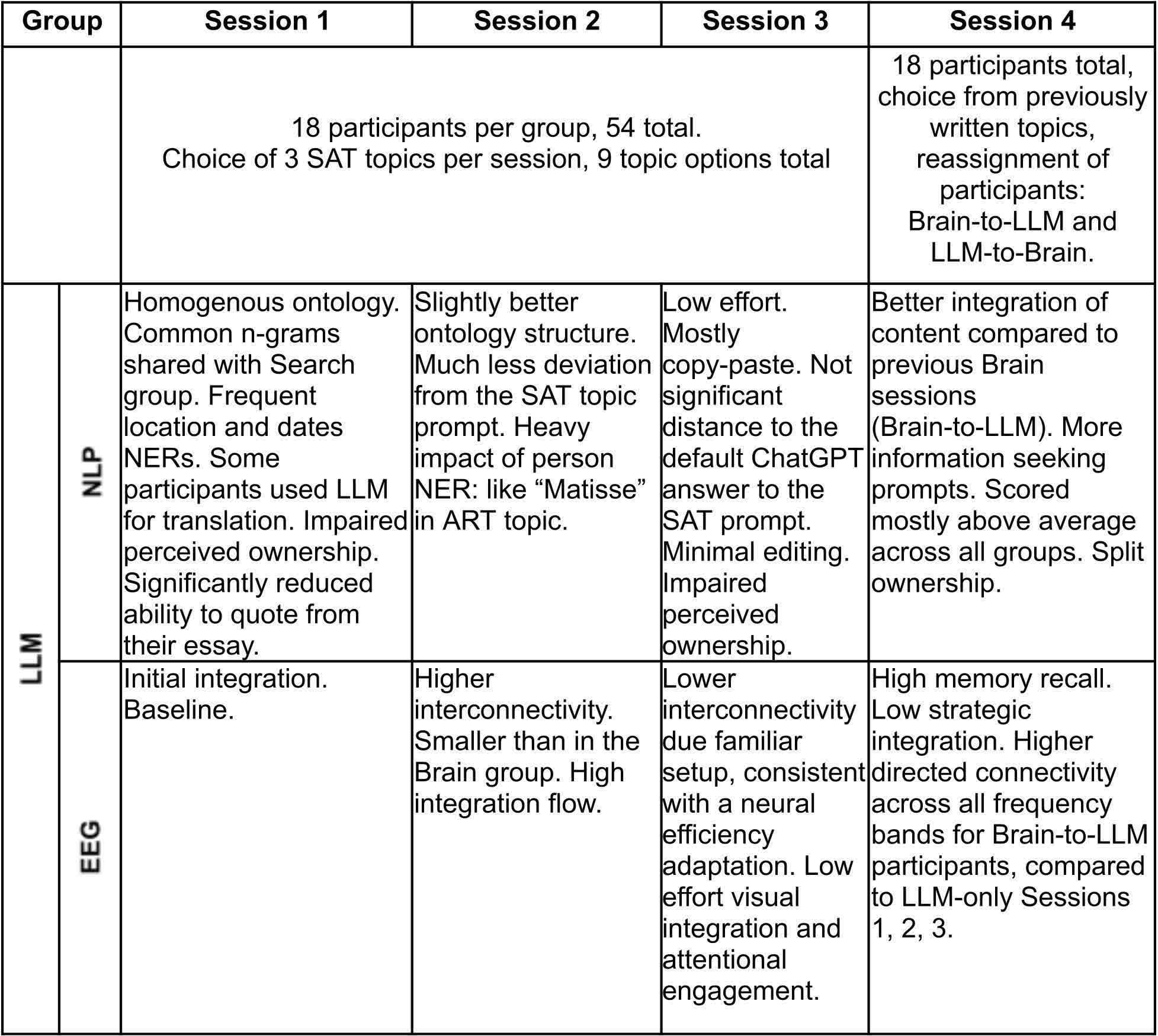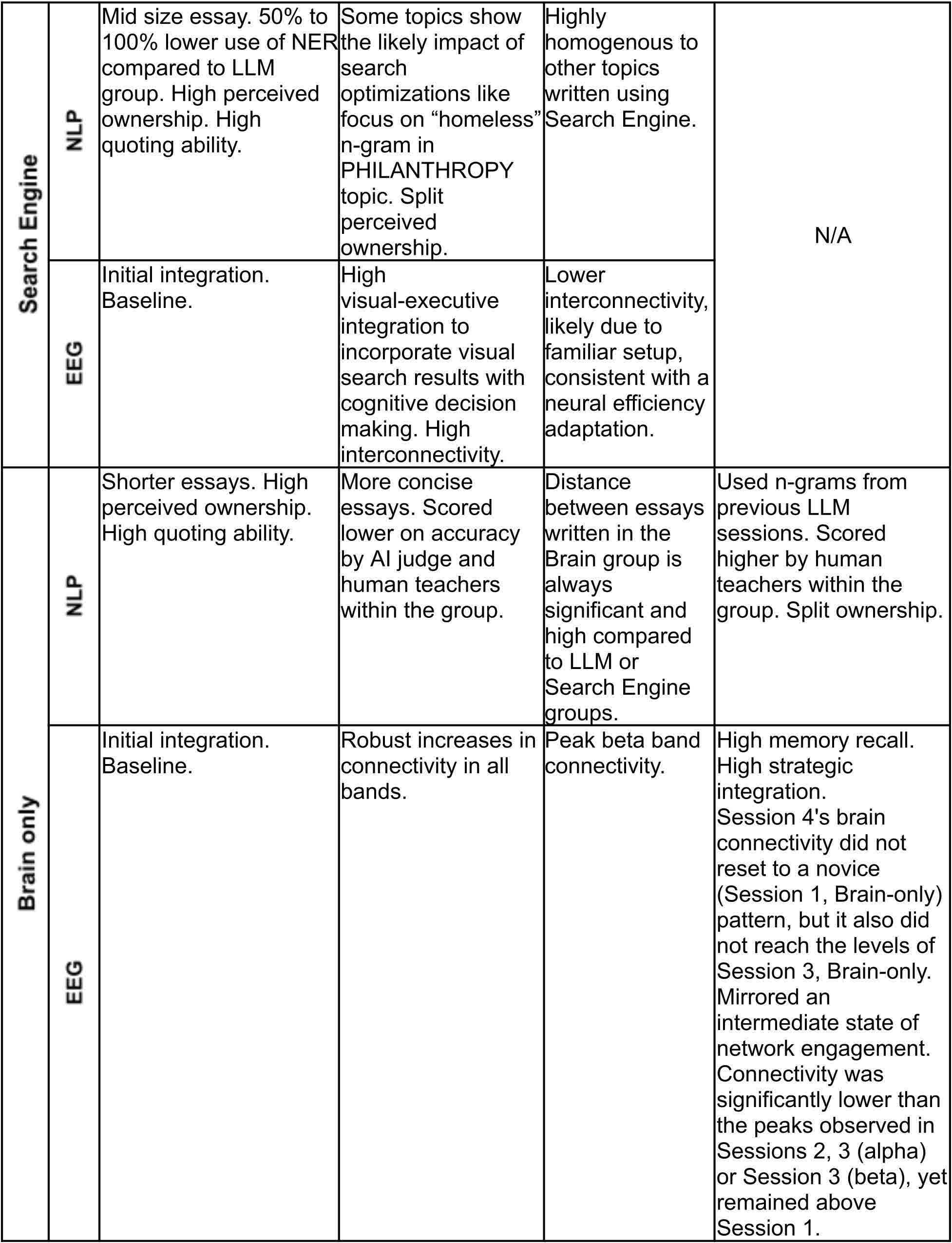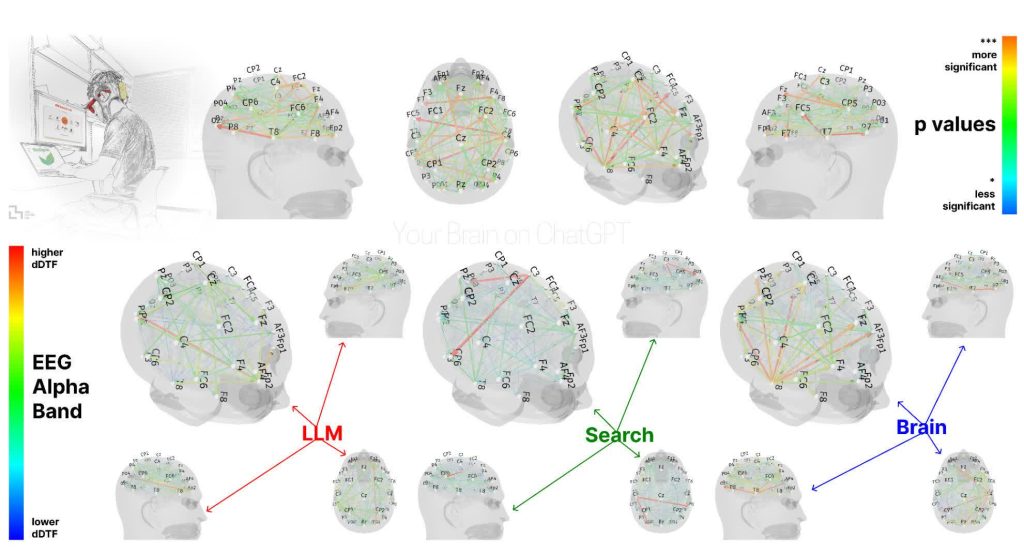Why it matters: As the use of generative AI becomes increasingly common in education, law, politics, media, and other fields, many worry that reliance on the technology may reduce cognitive independence. A recent study from MIT strongly supports this concern, indicating that the use of digital tools significantly alters brain activity.
The newly published paper explains that as participants in an experiment wrote a series of essays, electronic brain monitoring revealed substantially weaker connections between regions of the brain in those who used large language models (LLMs). This correlated with poorer memory and more derivative output.
Three groups of participants each wrote three essays: one group relied on an LLM, another used search engines, and the third worked without any external tools. Then, the LLM and “brain-only” groups swapped members for a fourth essay. Although essays from the brain-only group were not always the most accurate, participants in that group displayed significantly stronger neural connectivity, suggesting deeper mental engagement.
While essays from the LLM group received high marks from both human graders and AI judges, the writing tended to be more homogeneous and adhered more closely to the original prompt. Participants who used LLMs were more likely to copy and paste, edit their work less, and struggle to quote from their own writing.
During the final session, LLM users also had difficulty recalling information from earlier in the experiment. Their brain activity had reset to a novice level regarding the essay topics.


During the final session, LLM users also had difficulty recalling information from earlier in the experiment. Their brain activity had reset to a novice level regarding the essay topics.
Although the brain-only group showed some decline in connectivity over time, it remained at an intermediate level, and participants could easily remember earlier material. Interestingly, participants who switched from the LLM group to the brain-only group showed increased neural connectivity.
The group that used search engines demonstrated low-to-intermediate brain connectivity. Their writing was also highly homogeneous, but they were better able to quote from their work, suggesting stronger memory retention compared to LLM users.
Overall, the results indicate that any use of digital tools impacts brain activity, but search engines require more mental engagement than generative AI.
These findings could have significant implications for education, where the use of AI is becoming widespread. In many schools, most students now use tools like ChatGPT to varying degrees when completing assignments. Some generate only outlines or topic ideas, while others use the assignments as prompts and submit the output without so much as reading it.
Teachers and professors have also started using AI to grade assignments and try to detect the use of AI, with varying results. The results of the MIT study suggest that both groups might suffer cognitively, regardless of how much or how little they rely on LLMs.

